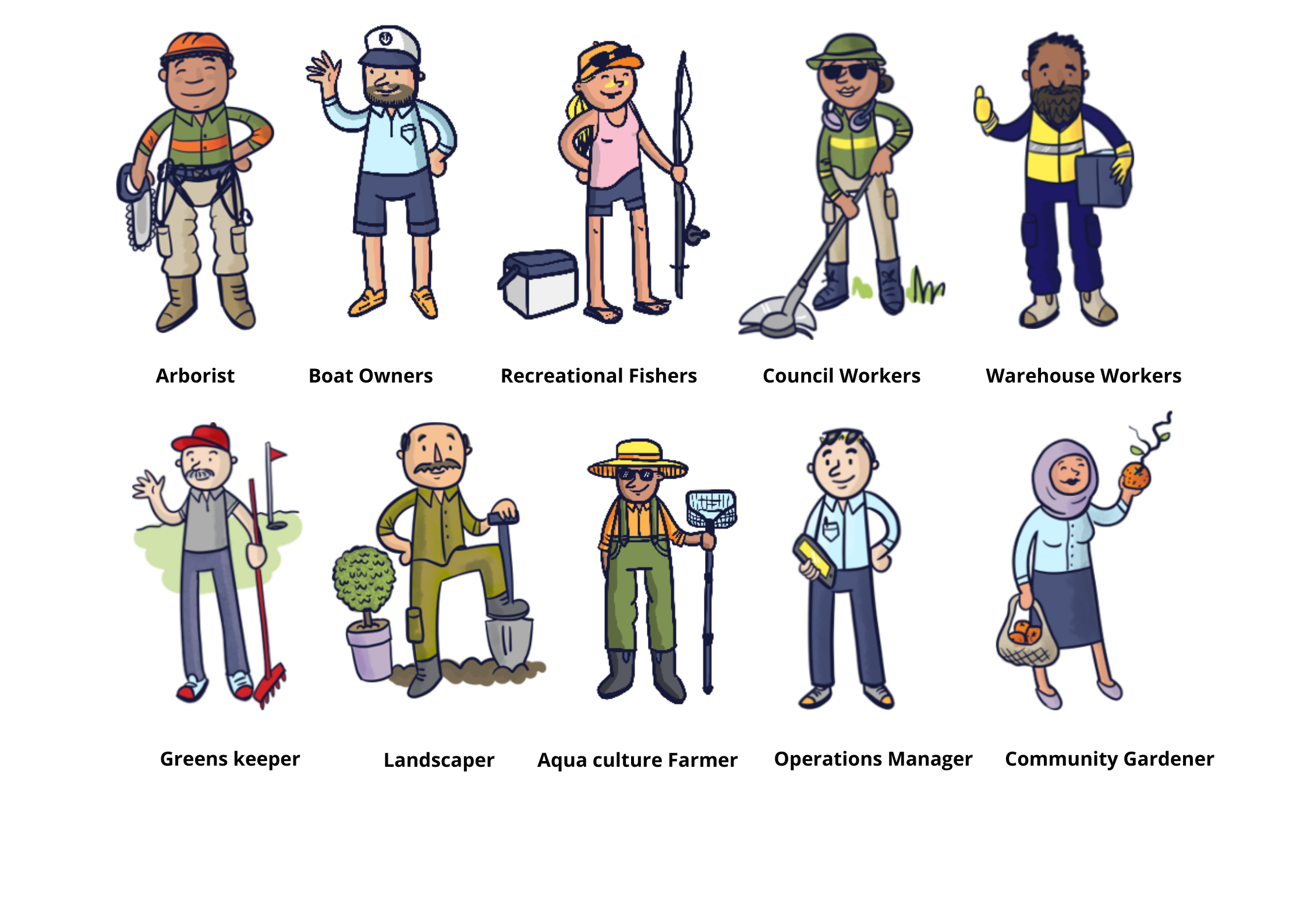
Gateway pests of NSW
Each person has a duty of care to protect our environment from pests, weeds and diseases.
Despite all our efforts at the national border to stop the entry of exotic (or non-native) pests and diseases into NSW, there is always a chance something could still slip through.
Many overseas pests and diseases have no natural enemies in Australia and in the right conditions, these pests and diseases could easily take over, significantly impacting agricultural production, trade access, our natural environment and way of life.
Everyone is encouraged to report any unusual pests or unusual signs of pests and disease to help protect what we love. The short-term impacts of any response is highly preferable to the long term management costs and inconvenience that could be experienced if the pest or disease became established.
People working in freight, logistics, ports and the agricultural sectors are part of our front-line detection squad and perform a critical role in surveillance activities including detection, identification and reporting of high priority pests relevant to their industries.
NSW post-border surveillance and reporting training development
To manage the risk of a high priority pest entering NSW, local council staff from LGAs surrounding Port Botany, employed in the outdoor maintenance and operations teams have been trained in the recognition, surveillance and reporting of cargo pests, priority exotic plant pests and new incursion species.
Gateway e-learning modules
People who work and play in areas along the high-risk pathways from the sea, air and cruise line ports, are also part of our front-line defence against these exotic invaders.
Biosecurity is a “shared responsibility” and everyone, no matter where they live or what they do for a living, has a legal responsibility to make sure pests and diseases are not introduced to, or allowed to spread, throughout our community or environment. Biosecurity is everyone’s business and we need your help as our eyes and ears, to ‘shut the gate’ on these exotic pests and disease to help us protect what we love.
To broaden awareness and boost post-border surveillance and detection along high-risk pathways, the department and Greater Sydney Local Land Services have developed an online education and training package to support our front-line detection squad for the following groups:

These e-learning modules feature known overseas and interstate pests that are recognised as having high damage potential to industries if they were to become established in NSW and Australia. These online learning modules have been designed to build capacity among people working in freight, logistics, ports and the agricultural sectors as well as community groups eg ports, community groups and local community gardening groups, to build networks and increase:
- awareness of priority pests
- surveillance networks
- reporting capacity within the community.
Early detection and reporting are key to successfully eradicating an exotic pest or disease incursion. The earlier anything unusual is discovered and reported, the less chance it has to reproduce and spread.
What do we mean by "gateway"?
Throughout the online course, “gateway” refers to the points of entry in which pests, diseases and contaminants could enter Australia and NSW. These include our:
- Sea ports via imported goods in sea freight and shipping containers
- Airports via imported air freight
- Postal services via imported goods, online shopping
- Passenger terminals such as cruise line terminals, boating marinas and
- Travellers who are coming into Australia from overseas who have visited natural areas or brought home souvenirs from their travels

What do we mean by "gateway" pest?
Gateway pests are also known as cargo, exotic, non-indigenous, contaminating pests, stowaways or hitchhikers. They are animals (insect, reptile, amphibian, mammal, bird or fish) or diseases that have hitched a ride to Australia and are not native to or established in NSW and could have a negative impact on plants, animals or people.
E-Learning Modules:
By completing the following e-learning modules you will be trained in the recognition, surveillance and reporting of cargo pests, priority exotic plant pests and new incursion species.
Here you will discover their:
- Pathways of introduction
- Impacts on you, our environment and our agricultural industries
- Hideouts and what to do if you spot these pests while going about your business
Module 1: Introduction to gateway pests etc
Module 2: Invasive ants, sharp shooters and pine tree pests
Module 3: Exotic reptiles, stinkbugs and plane tree pests
Module 4: Exotic mammals, khapra beetle, tomato potato psyllid and Myrtle rust
Module 5: Exotic amphibians, citrus diseases and Asian gypsy moths
Module 6: Aquatics introductory module
Local government, industry and community have played a pivotal role in “shutting the gate” on these pests. Find out how you can help!

